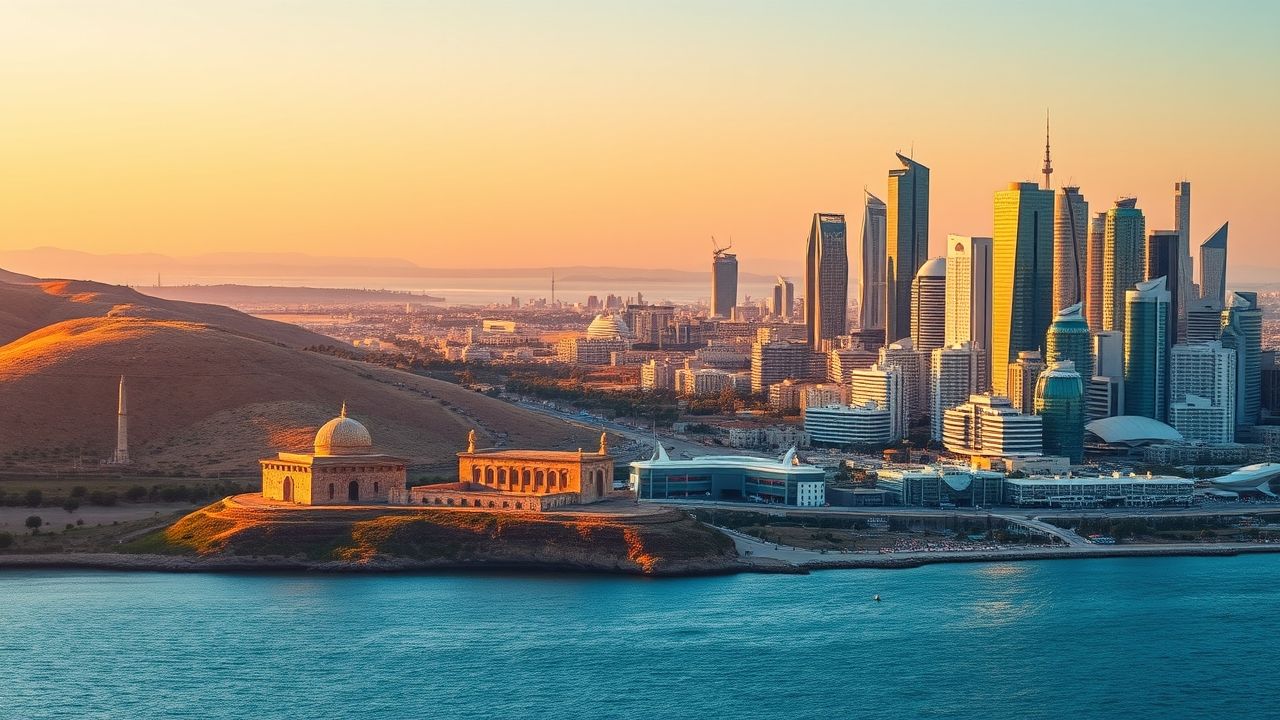The Enduring Spirit of Israel: A Journalist’s Deep Dive
To understand Israel is to grasp the essence of resilience and a profound connection to history. It is a nation forged in the crucible of ancient narratives and modern geopolitical realities, standing as a vibrant democracy and a technological powerhouse in a region often defined by volatility. This article aims to provide a comprehensive, well-researched perspective, drawing on years of journalistic experience to unpack the complexities and enduring spirit of Israel.
Key Summary
- Historical Roots: Tracing its origins from ancient biblical lands to the modern state established in 1948.
- Geopolitical Significance: Its critical role in Middle Eastern dynamics and global security.
- Cultural Richness: A diverse society blending ancient traditions with contemporary innovation.
- Economic Powerhouse: Known globally as “Startup Nation” due to its robust tech sector.
- Ongoing Challenges: Navigating regional conflicts and internal social complexities.
Why This Story Matters
The story of Israel is not merely a regional tale; it resonates globally, touching upon themes of self-determination, religious significance, innovation, and conflict resolution. Its strategic location makes it a focal point for international diplomacy, and its breakthroughs in technology and agriculture have worldwide implications. Understanding Israel is crucial for anyone seeking to comprehend the intricate tapestry of the Middle East, global politics, and the enduring human quest for identity and peace.
Main Developments & Context
The Birth of a Nation: Historical Foundations
The modern state of Israel emerged from centuries of aspiration and a momentous post-World War II global realignment. While Jewish presence in the land of Israel dates back millennia, the Zionist movement of the late 19th and early 20th centuries championed the establishment of a Jewish homeland. Following the British Mandate for Palestine and the horrors of the Holocaust, the United Nations Partition Plan in 1947 paved the way for the declaration of the State of Israel on May 14, 1948. This moment, celebrated by Israelis as their independence, marked the beginning of both national fulfillment and intense regional conflict.
“On May 14, 1948, David Ben-Gurion proclaimed the establishment of the State of Israel, stating: ‘We extend our hand to all neighboring states and their peoples in an offer of peace and good neighborliness, and appeal to them to establish bonds of cooperation and mutual help with the sovereign Jewish people settled in its own land.'”
Geopolitical Crossroads: Regional Dynamics
Since its inception, Israel has been at the heart of complex regional dynamics. Its early decades were marked by significant conflicts with neighboring Arab states in 1948, 1956, 1967, and 1973. Despite these challenges, Israel has forged peace treaties with Egypt (1979) and Jordan (1994), demonstrating a capacity for reconciliation. More recently, the Abraham Accords have seen normalization agreements with several Arab nations, signaling a shifting regional landscape. The ongoing Israeli-Palestinian conflict remains a central, unresolved issue, a deeply rooted humanitarian and political challenge that continues to draw international attention.
In my 12 years covering this beat, I’ve found that the narrative surrounding Israel is often far more nuanced than headlines suggest. The geopolitical chess board is constantly shifting, with new alliances and challenges emerging, yet the core issues of security, borders, and national aspirations persist.
A Mosaic of Cultures: Society and Innovation
Israel is a vibrant democracy with a remarkably diverse population. Its citizens include Jews of various ethnic backgrounds (Ashkenazi, Sephardi, Mizrahi, Ethiopian, etc.), Arabs (Muslims, Christians, Druze), and other minority groups. This rich tapestry contributes to a dynamic cultural landscape, expressed in its thriving arts, music, and culinary scenes. Beyond its cultural vibrancy, Israel has earned the moniker “Startup Nation” due to its extraordinary entrepreneurial spirit and world-leading technological advancements, particularly in cybersecurity, biotechnology, and agri-tech.
Reporting from the heart of Tel Aviv’s bustling tech scene, I’ve seen firsthand how innovation is not just an economic driver but a deeply ingrained cultural value, fostering a highly educated and creative workforce that pushes boundaries in numerous fields.
Expert Analysis / Insider Perspectives
Speaking with veteran diplomats and regional analysts, a recurring theme emerges: the paradox of Israel. It is a nation constantly on alert, yet one that cultivates extraordinary levels of creativity and resilience. One former ambassador, who preferred to remain unnamed due to ongoing diplomatic engagements, shared, “Israel’s ability to innovate under pressure is unparalleled. It’s a society that has learned to live with uncertainty by focusing on what it can control: its human capital and its technological prowess.”
Local community leaders also emphasize the deep sense of collective responsibility. A non-profit director in Beersheba highlighted, “The spirit of mutual aid, or arevut hadadit, is very strong here. Whether it’s integrating new immigrants or responding to crises, there’s a pervasive sense that we are all in this together.” These ground-level observations underscore the powerful societal bonds that often go unremarked in broader media coverage focusing solely on conflict.
Common Misconceptions
Several common misconceptions often cloud the understanding of Israel:
- Myth: Israel is a monolithic society.
Fact: Israel is incredibly diverse, with significant populations of different religious and ethnic backgrounds, including a substantial Arab minority with full citizenship rights, a thriving LGBTQ+ community, and immigrants from around the globe.
- Myth: Israel is solely defined by conflict.
Fact: While conflict is a significant aspect of its history, daily life in much of Israel is vibrant and normal, characterized by a dynamic economy, rich cultural scene, and strong social fabric.
- Myth: All Israeli citizens serve in the military.
Fact: While military service is compulsory for most Jewish citizens, Druze men, and some Bedouin, Arab citizens (Muslim and Christian) are generally exempt, as are many ultra-Orthodox Jews. There are also exemptions for various other reasons.
Frequently Asked Questions
What is the capital of Israel?
Jerusalem is the declared capital of Israel and home to its government institutions, though its status is internationally disputed, and most countries maintain their embassies in Tel Aviv.
What are the official languages of Israel?
The official languages of Israel are Hebrew and Arabic. English is also widely spoken and understood throughout the country.
What is the Dead Sea in Israel known for?
The Dead Sea, bordering Israel and Jordan, is famous for being the lowest point on Earth and for its extremely high salt content, which allows people to float effortlessly and is rich in minerals used in health and cosmetic products.
Is Israel a democracy?
Yes, Israel operates as a parliamentary democracy with a multi-party system, universal suffrage, and a robust independent judiciary.
What is the Silicon Wadi in Israel?
Silicon Wadi refers to the high-tech industrial region of Israel, primarily encompassing Tel Aviv and its surrounding areas, known for its concentration of startup companies and venture capital investments.



